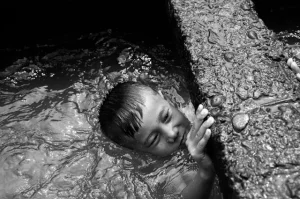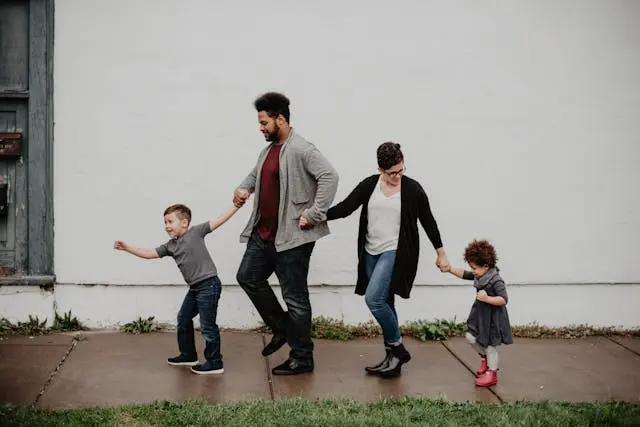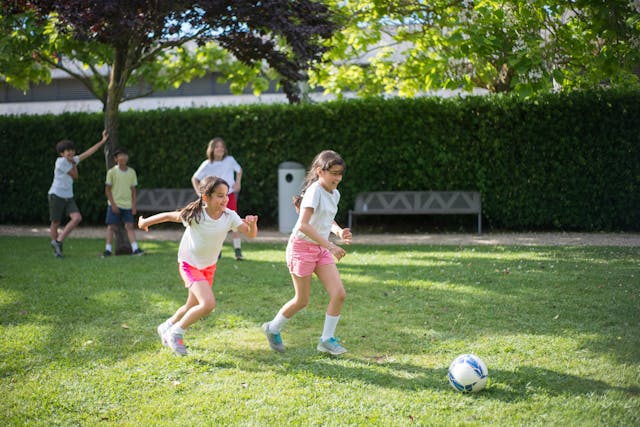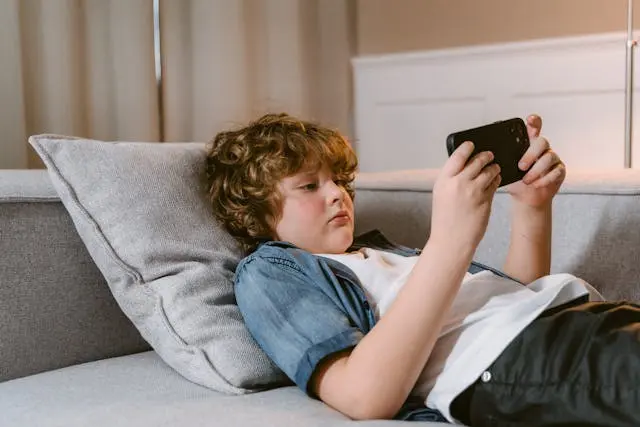Free-Range Parenting and Exploring the Philosophy and Practice
It’s an obvious topic at present among teachers and parents alike how free-range parenting influences a child’s mentality and behavior. I, for one as a mom and a preschool teacher, have experienced the changing behaviors within educational environments as well as at home. In this in-depth guide on the practice of free-range parenting, I intend to unfold everyday interactions with children in families raised under this parenting style, as well as how they manage themselves at school. Moreover, the practice of the free-range approach not only affects children but also parents who are involved. This type of parenting also encourages kids and children to have confidence in themselves to do better and, precisely, to do things on their own with confidence.
When the talk is about free-range kids, it’s common to notice how they behave at their will. As you keep exploring in this guide, you’ll come across how these children get along with others as well as sharpen their skills. This practice is a unique practice that upholds a parenting philosophy that doesn’t make kids feel they are overprotected or under control. Surprisingly, they like it! My discussion will extend and cover essentials that include practical implementation approaches while also giving an outlook on the impact on children as they grow up to be teenagers. To highlight how this kind of parenthood style has the potential to bring about an improvement and positive change in how the society of tomorrow will be shaped, I’ll describe how it helps boost self-confidence and mould moral conduct.
What is Free Range Parenting?
Natural-ranging parenting is the method that views children on equal terms to the adults and hence tries to give them greater responsibility and independence, and if possible do their exploration without much adult supervision, at all. First and foremost, the basis of free-range parenting is the view that kids can get a lot of information from diverse experiences, which will build up their resilience and their independence. Instead of directing everything, free-range parents follow the idea of giving their offspring more liberty, so children can go ahead taking risks, making decisions, and learning from consequences. By providing daily activities that encourage autonomy and responsibility, this approach allows kids to learn how to take charge and develop skills useful for life independently.
Key characteristics of free-range parenting include:
- Encouraging independence: A free-spirited mom permits children to take part in tasks faced by their age group, which inculcates a sense of cognizance of their capabilities.
- Embracing risk-taking: The idea behind free-range parenting is not to hide children from all possible dangers but to accept the fact that sometimes taking an invisible risk is part of the learning process.
- Allowing freedom to explore: Free-range parents make an effort to set aside time for unstructured play and allow their kids to explore their environment through outdoor activities. This not only increases the child’s creativity but also instils an appreciation for the earth.
- Fostering resilience: This type of parenting allows the children to face the situation and problem alone, hence, children learn to deal with adversities.
- Balancing guidance with freedom: The parents that let go of control allow their children to be guided by the parents when needed, see the significance of the freedom of choice, and appreciate the opportunities of learning from their choice.
Free Range Parenting Vs. Coercive Parenting
Free-range and coercive parenting are two different approaches that entail a set of beliefs and particular behaviors, respectively. Knowing the discrepancies between both these methods must be of utmost priority when the parents have to arrive at a well-thought decision about what method to use on the children.
Autonomy vs. Control
- Free-range parenting focuses on offering children their individuality and freedom, which allows them to learn and understand from their own experiences.
- Coercive parenting, on the other hand, is mostly based on control and authority, set by parents. These marked rules and choices on the decisions they make are with minimal input from their children.
Trust vs. Fear
- Free-range parents make sure to always base their relationship or the parenting approach on trust and belief in their children. This also makes children feel that they are capable of making good decisions in given situations.
- However, coercive parents act quite the opposite of the former as they often plant fear in children by enforcing rules and regulations followed by punishment for undesirable behavior.
Flexibility vs. Rigidity
- A free-range mom or dad often practices flexibility and keeps adjusting and adapting to the best interest of their children while also allowing room for exploration.
- On the other hand, a coercive mom or dad wishes to carry a strict set of rules and expectations around their children leaving less confidence and little or no room for creativity.
Collaboration vs. Dictation
- A free-range mom as much as a dad may seek open communication and collaboration between them and their children, fostering great potential for kids to be open about anything at all as well as maintain mutual respect.
- Coercive parenting relies on dictation, with parents exerting authority and expecting compliance without question.
Nurturing vs. Controlling
- Free-range parents tend to focus on giving a child the independence and self-confidence they deserve. This not only supports their growth and development but also increases respect towards parents.
- Coercive parenting certainly borders on controlled behavior. This approach hence brews conflicts and unwanted issues in parent-child relationships.
The Impact of Hands-off Parenting Style

For the Free Range Mom:
- Empowerment: A free-range mom certainly believes in the potential skills of her children while also experiencing high levels of freedom together with her child.
- Peaceful Life: This hands-off parenting approach allows parents to let go of any stress or mental pressure attached with close monitoring of kids which leads to calming the nerves of parents.
- Personal Development: The free-range parenting approach not only helps with parents’ personal growth but also exposes them to a much more peaceful environment, letting them feel at ease and instilling the same feeling in kids.
For the Kids:
- Sky High Independence: For youngsters, exploring and coming to terms with their own decisions promotes a new level of independence as well as self-reliance and confidence at an early age.
- More Creativity: With no limitations on exploring and playing, kids will naturally be more focused and exposed to creativity and imagination that will add colour to their little world.
- Uplifting Problem-Solving Skills: Students will continue to feel encouraged to confront problems and think critically on their own which uplifts their problem-solving skills with less effort.
Shaping Up a Preschooler with Free Range Style of Parenting

With what I’ve come across over the years in my classroom, the free-range parenting style has proven to be working well for children by offering them a unique opportunity to first explore and discover and then shape themselves accordingly to face any given situation. Hence, a range of specialized skills like communication, critical thinking, and accepting rejection are at the forefront of development in a child’s brain. Let me now walk you through to see how parenting styles like free-range can enhance and improve various skills needed for a little one’s growth.
Motor Skills Development
Unstructured play in natural surroundings encourages children to engage in physical activities including climbing, running, and balancing. Children develop gross motor skills necessary for coordination and balance when they explore the outdoors and encounter uneven terrain.
Cognitive Skills Enhancement
Exploring outdoors and engaging in open-ended play helps children develop curiosity and cognitive skills. Sorting natural materials, building forts, and observing animals all assist in fostering problem-solving, critical thinking, and creativity abilities.
Social Skills Building
Free-range parenting gives toddlers plenty of opportunities to connect with their friends and navigate social situations autonomously. Unstructured play and group activities teach children key social skills including sharing, taking turns, and settling problems.
Emotional Regulation
Encouraging children to explore their environment independently promotes emotional resilience and self-regulation. By confronting and resolving obstacles on their own, children learn to control their emotions and cope with stress in healthy ways.
Communication Skills Development
Conversations with friends and adults during unstructured play promote the development of language and communication abilities. Preschoolers learn to express themselves, communicate their ideas and emotions, and actively listen to others in a natural and realistic setting.
Shaping Up a Teenager with Free Range Style of Parenting
Girl Wearing a Mask and Cape Standing beside a Wheelchair · Free Stock Photo (pexels.com)
As children pass their childhood and enter adolescence, parenting in a relaxed approach like free range would set the tone right as well as gain additional relevance. Moreover, they tend to develop individuality through independence and this leads to being brought up as responsible and resilient teenagers. Let’s now have a look at how teenagers define free-range parenting and stand on their own as confident adolescents.
Encouraging Decision-Making
Free-ranging parenting encourages teens to assume responsibility for their decisions and behaviors.
Teenagers acquire essential decision-making skills and learn to accept responsibility for their actions when they are given the freedom to choose their schooling, extracurricular activities, and social relationships.
Fostering Self-Reliance
Adolescence is a period of transition into adulthood, and free range parenting style offers teens the right set of tools to gear up and be more self-sufficient growing up to becoming adults. They also tend to work and improve on giving worth to themselves and be proud of the fact that they can self rely on them. This will help them to manage their lives in a scheduled and more prioritized manner and have excellent practice in handling finances and traveling alone when they have to.
Promoting Risk Management
Parenting with less rigid tactics teaches teens how to evaluate risks and make educated decisions about their safety and well-being. Teenagers build resilience and gain useful risk management skills when they are exposed to modest risks and consequences in a supportive setting.
Cultivating Communication Skills
The most important aspect of the free-range parenting style is that it fosters more open communication which is much needed as teenagers. When raised in an atmosphere where they get to be open with parents with less fear or be able to openly express themselves and talk their minds, it can be a great advantage to both a free-range mom and a teenage child. Hence active listening, and good parenting with fewer restrictions as with this style of parenting will encourage them to deepen their connections while stepping into adulthood with stronger communication skills.
Nurturing Independence
Free-range parenting allows teenagers to explore their interests, follow their hobbies, and form a sense of identity. Parental support and respect for teens’ individuality allow them to explore their paths and appreciate the journey of self-discovery.
How Can Free Range Parenting Be Disadvantageous?

Lack of Supervision
One possible downside of the free-range strategy is that youngsters get less supervision throughout their adventures. Without close supervision, there is a risk of exposure to possible threats such as traffic or strangers.
Safety Concerns
Examples of free-range parenting have highlighted circumstances in which children found themselves in danger while exploring autonomously. Without rapid adult supervision, a kid may walk too far from home and become lost or hurt.
Judgement from Society
Depending on the part of the world you live in, free-range parenting can be a cause of concern and viewed with narrow mindsets. Neighbours or sometimes friends may consider it as negligence or will even take it to authorities as a matter to be looked into. Parents using this strategy may then start feeling restless and face anxiety only due to external pressure.
Legal Issues
In extreme circumstances, free-range parenting techniques have led to legal consequences, such as allegations of child maltreatment or involvement by child protective services. This can cause major stress and legal issues for families who follow the free-range ideology.
Set the Platform Right
As I come across numerous students coming from a free-range of parenting backgrounds, it’s come to my notice how different parenting styles bring up children differently with whole different values and beliefs in teaching. However, as I’ve discussed in this guide, adapting to a free-range style of parenting can surely benefit future generations and contribute to bringing up children with a healthy mindset who can get past any obstacle in life with confidence. This not only benefits them but the society as a whole. Have you tried free-range parenting? I would love to hear from you.









